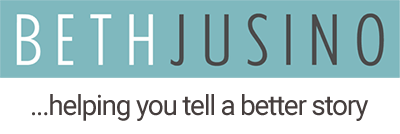
These days, the media is full of success stories from self publishing authors. There’s money to be made in self publishing, and plenty of voracious readers who are eager for new books. But there are also a lot of writers who are jumping off the diving board without looking into the pool.
So before you take the plunge, ask these three questions:
If your manuscript has been rejected by multiple agents and publishers, do you know why?
Are you ready to take control of every decision?
Does your audience buy self published books?
If your manuscript has been rejected by multiple agents and publishers, do you know why?
Sure, maybe those agents and publishers don’t know that they’re looking at genius (Harry Potter and the Philosopher’s Stone was rejected 12 times before it found a publisher). Maybe they’re all just scared to take a risk on an unknown name. But maybe there’s something about your work that’s not ready for a reading audience yet. Let’s be honest. There are a lot of self published titles out there that would have been great books if the author had spent another year, or even six months, revising and editing.
If agents have read your manuscript and given you positive feedback, but you just can’t quite seem to close the deal (“I love it, but I don’t know how to sell it,” or “this is great, but publishers are looking for something else right now”), then your book is probably ready for self publishing.
But if you’ve been pitching publishers and agents and have gotten nothing but form letter rejections, then before you put that book out into the world invest in a professional opinion from a developmental or substantive editor who can give you an unbiased opinion on the quality of the work.
You’ve already invested months, or years, of your life on this project. If putting in the time for one (or more) more rounds of revision will mean the difference between a page full of 1-star reviews and a page of 5-star reviews, can you really afford to rush?
Are you ready to take control of every decision?
Publishing has gotten a lot easier in the past five years, but that doesn’t mean it’s easy. Self publishing your book means that you’re going to be your own small business—producing, packaging, distributing, and marketing your own product, which customers then buy.
Yes, you can hire experts to help you navigate, and there are companies out there that will handle most of the publishing and distribution issues for you. But in the end, the buck stops with you.
You will need to navigate the Internet: creating accounts, remembering passwords, clicking links, and uploading files. If email gives you trouble, running an online business (that’s essentially what self publishing is) will be challenging. You may need to consider hiring a publishing consultant to be a project manager.
You will need to choose the editors, the designers, the formatters, and the distributors. And you’ll need to choose wisely; there are plenty of predators out there looking to take advantage of new writers.
There will be things you don’t know, and things you might need to learn on the fly. Are you willing to muddle through to learn new terms, new language, and new processes?
Hint: Google is a new business owner’s best friend. If you have a question, surely someone’s asked and answered it before. (Actually, a lot of people have asked. Be prepared to wade through a lot of conflicting information.)
Do I need an ISBN?
How much should I charge for my ebook?
What trim size should my book be?
What does it mean that my book is returnable?
Does your audience buy self published books?
Different genres of books draw different readers, and not all readers choose books the same way. Before you decide to take the self publishing plunge, take a hard look at your readers. Who will eventually buy—and love—your book? (Be brutally honest here: no book appeals to “everyone.”) And then ask: what motivates them to buy?
Self publishing authors thrive in genre fiction: romance, mystery, thriller, science fiction, fantasy, erotica, etc. Readers here are voracious and eager for something new. They shop online, they read ebooks, and they’re always looking for a deal. Price matters to them, as well as a great cover and story hook. It’s an ideal scenario for self publishing.
Nonfiction authors with strong “felt need” topics can do well with self publishing if they choose their keywords carefully, based on what people are looking for, and if they already a platform and established themselves with their audience. The nonfiction author here is the trusted brand that readers will follow, not the publisher.
But what about literary fiction? Poetry? Experimental short stories? Children’s books? Readers here (at least for now) seem to browse online for new titles less. They make their purchase decisions based on professional reviews or recommendations from trusted sources. That’s not to say that self publishing won’t work for these genres, but if this is your area and you want to self publish, you’ll need a proactive marketing plan to help you get your book noticed by those external influencers first.
